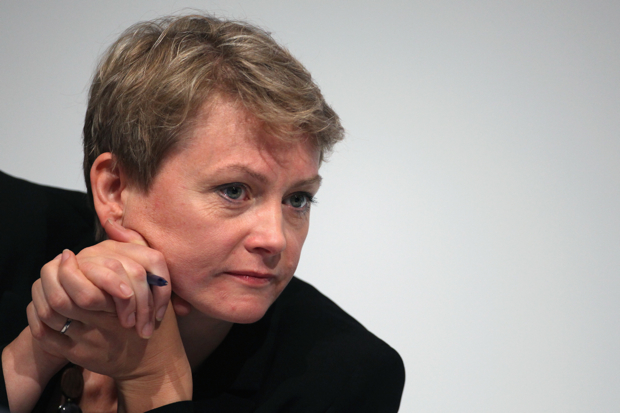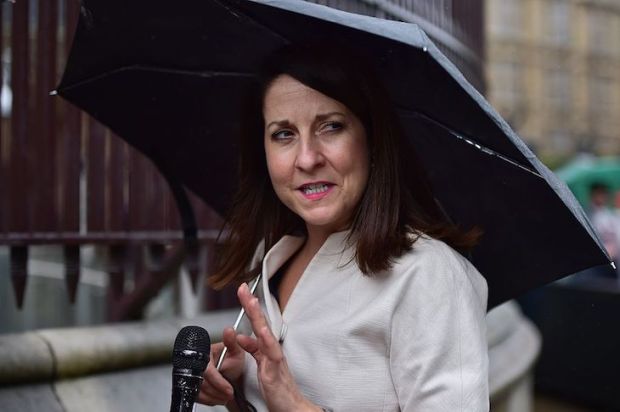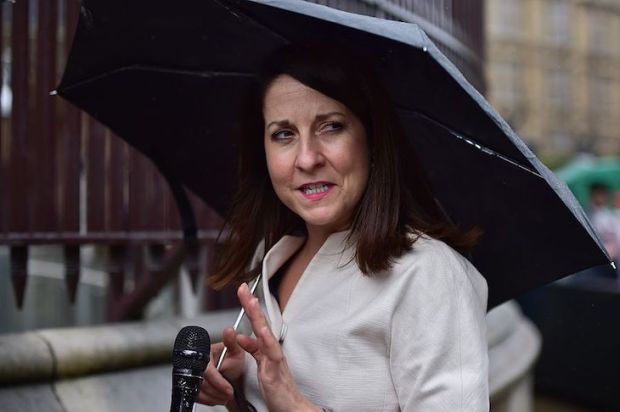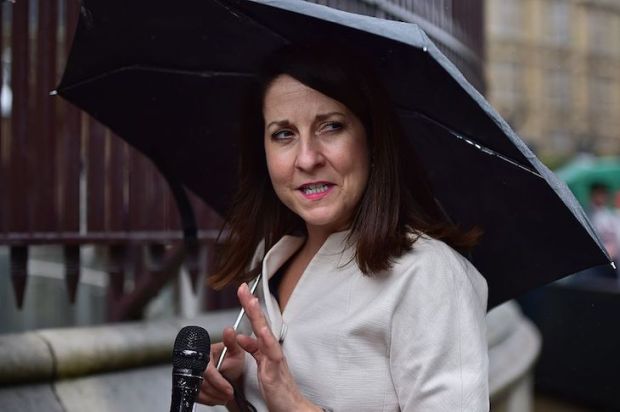Listen
Victor Spirescu came to Britain last week looking for work washing cars, but seems to have landed himself with a career in broadcasting. The Romanian, who arrived on the first flight into London after restrictions on workers from Bulgaria and Romania ended on 1 January, has now spent the days since touring studios and newspaper offices, obliging those who wish to talk to him about his new life. Those who bump into him as he weaves his way across television studios have the impression that he wishes he’d caught a slightly later flight.
But someone had to meet Keith Vaz, chairman of the home affairs select committee, who was waiting in a café at arrivals. Romanians should spare a thought for these Labour MPs. They are in a difficult position. The party is mindful that it is still resented for its decision to grant the Eastern Europeans full access to Britain, and that this was a weakness in the last election. Former ministers still feel bruised, especially by those who agitated while in government to acknowledge the concerns of voters about immigration.
This partly explains why we do not hear Labour frontbenchers speaking quite so loudly about the benefits of immigration; instead they give speeches in which they try to reassure voters that it is ‘understandable’ to worry about some of its negative impacts. Yvette Cooper, the shadow home secretary, is reduced to complaining that the government’s Immigration Bill isn’t tough enough. The legislation is returning to the Commons in the next few weeks, which will compound the misery for Labour.
Cooper has tabled amendments, calling for (among other things) an assessment of the impact of Bulgarian and Romanian migrants. A Labour source argues that ‘we’re not just sitting here and thinking we’re trapped and soft on immigration: we have got a more sophisticated policy than that’. Cooper has set out quite a bit of detail on this sophisticated policy, yet it sounds remarkably similar to the Conservative position, save a few bells and whistles. It is quite possible that Labour will not feel able to vote against the government’s Bill — which will charge temporary migrants for some public services and make it easier to remove those who have no right to be here. The party is paralysed by the fear of repeating its old mistakes.
For Ed Miliband, the pain is particularly acute. The Labour leader’s background and instincts are those of a metropolitan liberal. He is fond of talking about how Britain gave sanctuary to his father, describing it as a warm-hearted country with open arms. Yet, as he knows, this is not how his target voters see things. On this, as on many policy areas, Miliband accepts the polls and takes the advice of his ‘Blue Labour’ colleagues Jon Cruddas and Marc Stears. He has to argue against his own intellectual position — and do so convincingly.
One former Labour adviser, deeply unimpressed by this ‘wholly strategic’ approach, believes his boss will not be able to keep up the pretence. ‘He will get found out in the end,’ he says. ‘The Labour party has got nothing to say on the big issues: it talks about cost of living to mask that. What question is Ed Miliband the answer to? I seriously don’t know. But this is not a progressive way of talking about immigration at all.’
Talking tough on immigration might be rather uncomfortable for Miliband and his team, but it is far less painful than addressing some of the problems that explain why the immigrants come. The unreformed welfare system means people on benefits in Britain can face an effective tax rate of up to 95 per cent on their earnings. Some of the Romanians are able to pay just 10 per cent tax, thanks to a loophole that leaves them subject to Romanian taxation. Some Labourites believe that radical reform is the answer, but it remains a touchy subject. Liam Byrne was booted out of the welfare job last autumn because of the rage he provoked whenever he punted a vaguely robust plan for reform.
Even Miliband needs to spend weeks deliberating with his party before making any tough announcement on benefits. It took four weeks of meetings with Labour backbenchers in the summer before they could announce the party was dropping its support for universal benefits, and that it would cap welfare spending.
The days of Tony Blair’s ‘Napoleonic’ style of leadership are gone, and in their place come Miliband’s ‘squaring’ meetings. For immigration announcements, Miliband has apparently felt the need to win support from only two other internal critics: Diane Abbott and Sadiq Khan. More such meetings will be needed while Miliband works on his party’s own ideas to curtail freedom of movement in the European Union — focusing on the right to work in Britain, not the right to live here. This may well form part of Labour’s offer to voters for the European elections. But even this simply mirrors announcements already made by Conservative ministers.
Even now, as the polls and the bookmakers agree that Ed Miliband is 18 months away from power, Labour is frightened of having its own distinctive immigration policy. The question is whether that will disappoint voters who are looking for tough measures — and polls show that this is, economy aside, still the issue that troubles British voters the most.
As Vince Cable observed this week, the Tories did not have a very well-thought-through position on immigration at the last election — but it was argued then that they didn’t really need one. They were the party trusted most on the issue. Labour has no such luxury. If Miliband’s target voters remain unsure that he believes what he says, they might still think the safest bet is to vote Conservative.
Got something to add? Join the discussion and comment below.
Get 10 issues for just $10
Subscribe to The Spectator Australia today for the next 10 magazine issues, plus full online access, for just $10.
You might disagree with half of it, but you’ll enjoy reading all of it. Try your first month for free, then just $2 a week for the remainder of your first year.













Comments
Don't miss out
Join the conversation with other Spectator Australia readers. Subscribe to leave a comment.
SUBSCRIBEAlready a subscriber? Log in